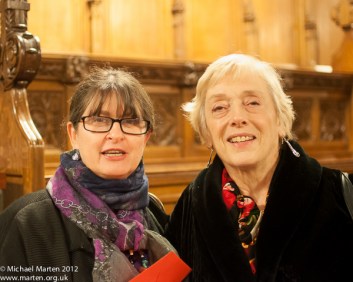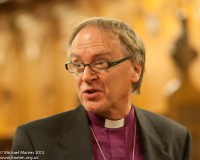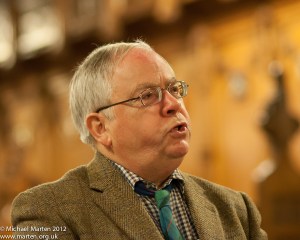Tags
Critical Religion, religious education, religious observance, religious studies, schools, Scotland, University of Stirling
[Picking up on the debate at Stirling University on 23.10.14, and the introductory blog to this topic by Alison Jasper and John I’Anson, we’re delighted that Sarah Clark, who presented a student view at the debate, has kindly agreed to provide us with her contribution. We will also be offering two comment pieces on the debate. Comments are turned off on this posting, but we look forward to comments on the later postings. – Michael Marten, Editor]
I approach the question of Religion, Education and Indoctrination from the multi faceted perspective of someone who has encountered the process of religion and education from simultaneous and varying viewpoints: as a school student, as a university student, as a teacher (of sorts) and as a mother of two children currently attending a Scottish and supposedly non-denominational school.
I arrived at Stirling University in 2010 with a preconceived notion of religion and religious education that was based on my school experiences. I attended Scottish non-denominational schools throughout my education and while I do not recall encountering religion at primary school I can clearly remember it at secondary school, in particular I recall my first year, when I earned full marks for a class test on world religions. I was met at the gates the following day by a baying crowd of bullies shouting ‘Bible basher’ at me – because in the 1980s there was a common misconception that to study religion equated to ‘being’ religious. Thankfully, from a school perspective, this understanding has diminished. However, and many other students of Critical Religion may identify with this point, I do still meet peers and elders who on hearing I am studying ‘Religion’ at university say things like – ‘oh I didn’t know you were religious’ and ‘what religion are you?’.
I decided after the school incident it would be safer to avoid Religious Education altogether. What I hadn’t recognized at the time was how the school continued to provide me with a Religious Education of sorts. As per the government’s education directive and in recognition of Scotland’s Christian heritage, a particular set of norms values and beliefs were being transmitted to me in the classroom and through the schools social environment. As those of you studying Education will be aware, research has shown that through its socializing function, education inserts individuals into existing ways of doing and being. I don’t like the word indoctrinated or the term ‘hidden curriculum’ as to most of us it represents something pernicious, so I have used the word socialized here instead. However, my point is that I left school all packed up with a knowledge base built around existing ways of doing and being, a knowledge base carefully constructed by the Scottish Education system that had me believe my cultural practices (to which the word ‘Religion’ was never attached) were the status quo and that Religion was something that the others had, and that to know others is possible through knowing their Religion.
I do not suggest that this was the experience of everyone who came through the Scottish Education system but I do believe it was for the majority. How do I know this? Firstly through the shared experiences I have had with fellow students who, on arriving at Stirling University had their carefully constructed knowledge base examined and unpacked by the department of Critical Religion. A valuable process is that it enables one to study ‘objectively’. Secondly, I know this due to the resistance I feel when attempting to share my new understandings with friends and family enquiring about my studies or passing comment about recent news events and foreign affairs.
I started my degree with the intention of becoming an RE teacher but this intention changed after my practice experience in schools. Having worked in various Government institutions (incl. social work, prison service, nursing), I was fully prepared for the disparity between the Governments directive about what will be done, the nice glossy brochure or user friendly website outlining how things will be done, and the harsh reality of what actually happens. What I was not prepared for was the cognitive dissonance I experienced when I realised how badly this disparity impacts on the subject of Religion.
The Scottish Government has issued two papers in relation to Religion in schools – one on provisions for religious observance, the other on religious education. In terms of religious observance the Directorate encourages schools to draw upon the rich resources of Scottish Christianity when planning and to recognise the students of other faiths or with no faith commitment. A challenge indeed. What my experience in my teaching placements and as a mother of two young children attending a Scottish non-denominational school shows is that a kind of P.C. approach is used that involves a complete avoidance of the word Religion, but that includes teaching and singing hymns at assembly (whilst switching the word God for joy).
Alongside but almost in opposition to this, the Directorate states that in relation to religion and class room learning, ‘through an understanding and appreciation of the world’s major religions and views, children and young people can develop responsible attitudes to other people which will assist in counteracting prejudice and intolerance’.
Between the two papers, what is essentially being said is this: ensure pupils are socialised within a Christian context (‘us’) and learn about other people through their religion (‘others’). Creating such a binary division is the backbone of ethnocentrism, in this instance parcelling up knowledge about ‘others’ under the category of Religion whilst reinforcing a ‘Christian identity’ that hasn’t been afforded the same categorisation? The very aims of the Directorate are being undermined by the incompatibility of what I consider to be a dishonest and out-dated approach. How can we acknowledge our Scottish Christian heritage without being honest about what it is we are practicing – religion – whilst categorising others and claiming to know them by applying the term to their practices? Rather than being an antidote to prejudice and racism this practice is adding fuel to the fire!
Thankfully, the glossy brochure, Scotland’s Curriculum for Excellence, (CfE) offers an opportunity to address this issue through its ‘curriculum areas‘. There are 8 curriculum areas including expressive arts, sciences, languages, one of which is religious and moral education. These are different from subject areas: they are broad umbrella terms, and are not structures for timetabling: the intention is that each curriculum area contributes to student development through its own disciplinary context and through connections with other areas of learning. There is a strong emphasis at Stirling University for student teachers to embrace this feature of the curriculum, to work with other subject areas and find the connections between disciplines, which is wonderful. The sad reality is that many students set sail from University ready for challenges and opportunities of interdisciplinary learning, only to be washed away and drowned in the sea of ‘do as your told’. The relentless drive for improved school performance, statistics and league tables, which, unfortunately is still measured by subject,-driven exam results, means that subject area still outranks curriculum area. So what this translates to is shoe-horned and token-gesture interdisciplinary learning. And for Religious and Moral Education (RME), the shoe-horning focuses more on issues of sex, relationships, and citizenship than it does on issues of religion and faith.
So. Is there a future for Religion in Scottish non-denominational schools? Is it still relevant?
Yes. And Yes!
Recently the former First Minister of Scotland, Jack McConnell spoke at Stirling University reminding students of the importance of Arts and Humanities in what he described as an increasingly diverse and deeply complicated world. Speaking just prior to the vote on Scotland’s independence and as tensions were rising in Syria, he noted the importance of having people that can communicate in a global context and share events with others (English, languages and media), who can unravel our past (history), and shape our political future (politics). I was initially frustrated and disappointed that he had not acknowledged the importance of Religion, but then I reminded myself that the subject of Religion need not be separate. Religion is, at its nexus, an ideology, a belief system that is intertwined with and reverberates through literature, through history, through economics, social studies, politics, science and language.
The Bible, as just one example, has been a major influence on artistic themes, scientific inspiration, conflict, intertexuality, economics and political discourse throughout the last few centuries. A lack of knowledge and understanding about the text and its historical context can make teaching what on the surface might be considered an unrelated subject, far more difficult. How should schools successfully approach a subject that is so interwoven into everything we do?
What I suggest is, that to deal with a subject that is so interwoven into everything we do – we interweave the topic teachers! (I don’t mean physically sew them together of course!)
I envisage our specialist teachers working peripatetically from first to third year, moving around the school and integrating into other subject classrooms to help students identify, engage with and contextualise religion and faith issues as they encounter them. Explore the diversity and hybridity of Hinduism whilst engaging with Salman Rushdie’s Midnight’s Children in English. Discuss what the Shinto tradition has to say about organ donation in Biology. Debate the international basketball association’s ban on religious attire at PE. Pupils will be allowed to focus on the subject more specifically in 4th year and even more critically in 5th and 6th year thereby safeguarding the subject qualification element and ensuring its future. But all pupils will be encouraged to engage with Critical Religion and critical thinking that takes them beyond their own belief system in all subject areas… bearing in mind that we first have to be honest about what our belief system is, instead of blurring the edges so as not to offend others.
I would encourage all RE teachers currently practicing in Scottish schools to take the amazing opportunity that the Scottish Curriculum for Excellence has presented us with before it passes us by: take advantage of the flexibility it allows, take ownership of the curriculum area and the subject of Religion in Scottish Schools and move it forward.








